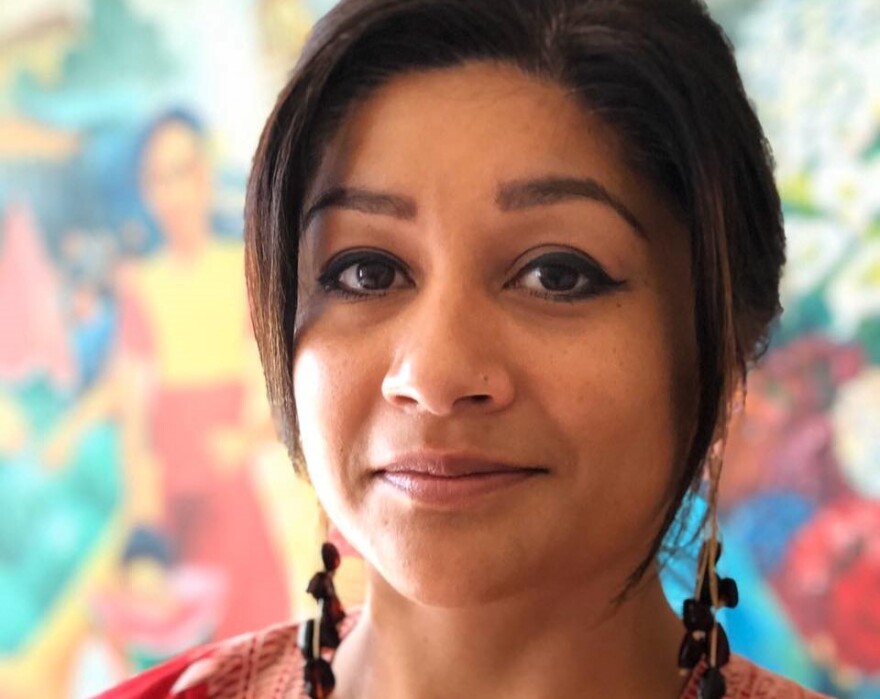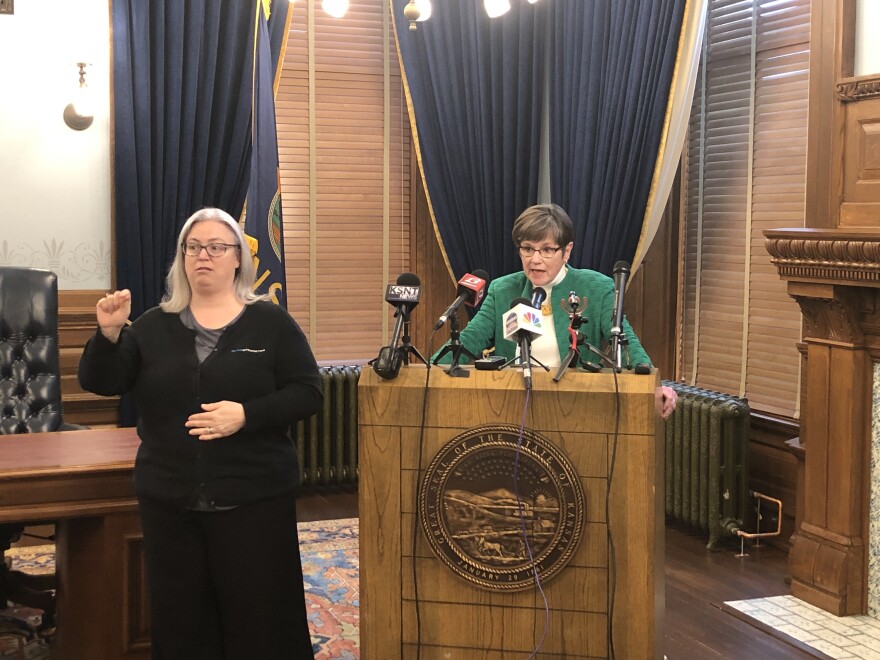Celia Ruiz updates her Facebook page multiple times a day. These days, the content is all coronavirus-related – flyers from school districts on how to get kids’ lunch, infographics from local health care providers, articles on how the virus is affecting people across the world. And she’s translating it all into Spanish.
Ruiz works for United Healthcare, so she’s constantly getting new information to share.
“Once I receive a resource, I try to translate it as best and as quickly and as correctly as I can,” Ruiz says.
As the coronavirus continues to spread across Kansas City, keeping up with the latest news can be a full-time job — even if all that material is coming to you in your own language.
But for non-English speakers, essential information about health and work can be harder to access.
Ruiz says it can be hard to keep up.
“Even if there's this awesome New York Times story, I don't have the time and I may not have the capacity to translate an entire document,” Ruiz says.

Which means Ruiz often shortens a story or summarizes a paragraph. She knows that leaves gaps in information, especially information about the metrowide stay-at-home order.
Like many English speakers, Spanish-speaking families have lots of questions about whether they were allowed to go to work. But Ruiz can’t direct them to the original source in English.
“Families ask, ‘Well, is 'blank' role an essential role?’” Ruiz says, “We really can't say, ‘Go back to the order and look through there.’”
While community outreach is part of Ruiz' job at United Healthcare, most of the translating she’s been doing has been on her personal time. Lately, she says the line between work and her personal life is blurred.
“The importance, as far as sharing the information, started as a personal thing,” Ruiz says. “Work and home have always been intertwined, especially when it comes to community outreach.”
Ruiz has also been helping create infographics and public service announcements in Spanish to distribute to area churches, schools, local governments and other organizations.
A “huge need” for languages other than English and Spanish
Kat Girod, with Olathe public schools, uses Ruiz' Spanish-language materials so she can distribute identical information to parents in English and Spanish.
The district has also set up a Spanish language hotline to respond to questions in real time, but she knows it's not enough to fill all the language gaps.
“I've been impressed with our community response in the Kansas City region for Spanish speakers, but I think there's always a huge need for languages other than English and Spanish,” Girod says.
According to Olathe school district, 94 different languages are spoken at its schools.

Kristina Marsh works with refugees from Burma and the Congo as a case manager for Catholic Charities in Kansas City, Kansas. In addition to using national refugee resources that have been translated Burmese, Chin and Karen languages, she’s also relying on community leaders to help get information out.
“So a community leader can be like a pastor or oftentimes it's someone with just higher level English that happens to just know the systems and help people,” Marsh says.
Marsh says those non-professional community leaders are especially important so refugees have someone in the community they can trust will have accurate, reliable information.
Local governments are stepping up to reach the deaf community
While most efforts to get the word out to harder-to reach communities is happening behind the scenes, other efforts can be seen right on your TV screen.
American Sign Language interpreters are appearing alongside state and local officials to relay important news about COVID-19, like stay-at-home orders.
Micki Keck works for The Whole Person, which provides resources for people with disabilities. She’s also deaf, and she says, under normal circumstances, even closed captions can be unreliable. She feels like she’s getting more complete information when an interpreter is there live.
“With the coronavirus, it’s such heavy information. The information is so complex and so it's really nice … to know more of the scientific terms and be able to see that with the interpreter,” Keck says.
She says she’s been glad to see local governments including interpreters in their daily press briefings, but she still faces big challenges getting that information out, particularly to deaf refugees she works with who may not speak American Sign Language.

While having ADA accessible press conferences is especially important now, the crisis only illustrates gaps in accessibility across the board.
Robert Cooper, Executive Director for the Kansas Commission for the Deaf and Hard of Hearing, told KCUR in an e-mail that not including interpreters at public meetings can be harmful for deaf people.
"Lack of information is the key ingredient for communication breakdown, misunderstanding or even misinformation," Cooper said.
With the help of public media collaborative America Amplified, KCUR is offering Spanish translation on some coronavirus coverage on our website in order to better inform primarily Spanish-speaking people in our listening area. You can find those stories at kcur.org/espanol.
Lisa Rodriguez is a reporter and the afternoon newscaster for KCUR 89.3. Follow her on Twitter @larodrig.



